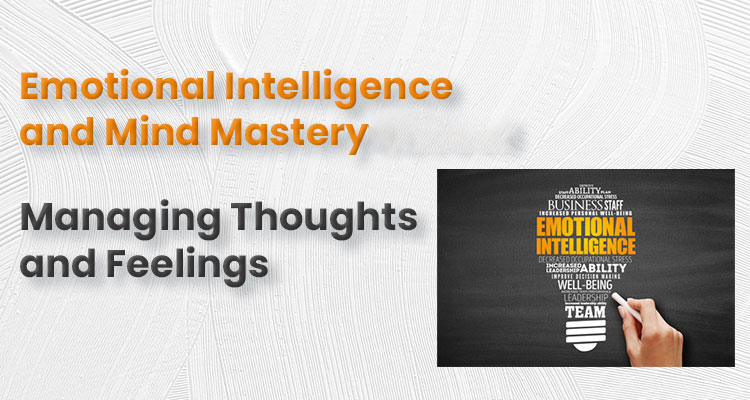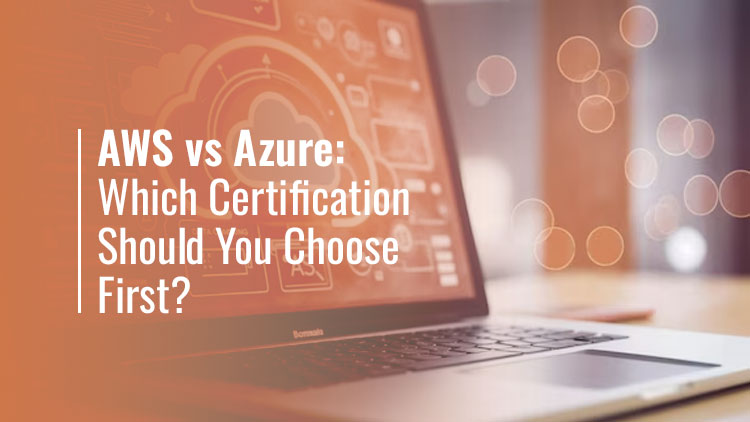
Emotional Intelligence and Mind Mastery: Managing Thoughts and Feelings

Introduction
In today’s rapidly evolving world, where technology drives much of our interactions and experiences, the importance of emotional intelligence (or emotional quotient) cannot be overstated. While intelligence quotient (IQ) has long been regarded as a measure of success, EQ has emerged as an equally, if not more, crucial factor in navigating the complexities of modern life.
This blog explores the significance of nurturing emotional intelligence in our contemporary era. Beyond merely recognizing and understanding emotions, EQ encompasses the ability to manage and utilize them in constructive ways. Learn how EQ serves as a guiding light, aiding individuals in fostering meaningful relationships, facilitating effective communication, and boosting mental well-being and resilience. Join us as we embark on a journey to uncover the transformative power of emotional intelligence and its role in mastering our thoughts and feelings amid the rapid pace of change.
What is Emotional Intelligence (EQ)?
Emotional intelligence, or emotional quotient (EQ), is a vital skill set that empowers individuals to navigate life’s challenges with grace and resilience. At its core, EQ encompasses the ability to understand, utilize, and regulate one’s emotions in constructive ways. It acts as a compass, guiding individuals toward effective communication, stress management, conflict resolution, and empathy.
- Self-management: This involves the capacity to regulate impulsive reactions, maintain emotional balance, and adapt to changing circumstances. It requires discipline, initiative, and the ability to follow through on commitments.
- Self-Awareness: As a cornerstone of emotional intelligence, this entails recognizing one’s own emotions and their impact on thoughts and behavior. It involves a deep understanding of personal strengths and weaknesses, coupled with a healthy dose of self-confidence.
- Social Awareness: This expands the scope of emotional intelligence to include empathy and understanding of others’ emotions, needs, and concerns. It involves being attuned to emotional cues, navigating social interactions with ease, and grasping the dynamics within groups or organizations.
- Relationship Management: This embodies the art of cultivating and sustaining meaningful connections. It encompasses clear communication, the ability to inspire and influence others positively, effective teamwork, and skillful conflict resolution.
In essence, emotional intelligence equips individuals with the tools necessary to thrive in various aspects of life, fostering personal growth, fostering resilience, and nurturing harmonious relationships. The main elements of emotional intelligence empower individuals to connect with their own feelings, translate intentions into actions, and make informed decisions aligned with their core values and aspirations.
Ready to embark on a journey of self-discovery and emotional growth? Dive into “Memory Magic: Unraveling the Secret of Mind Mastery” by Versatile Reads. Explore how mastering your thoughts and feelings can lead to greater emotional intelligence and personal success.
How Is Emotional Intelligence Measured?
Measuring emotional intelligence is a complex task that involves evaluating an individual’s ability to perceive, understand, and manage emotions effectively. Various assessments have been developed to gauge levels of emotional intelligence, with self-report tests and ability tests being the two primary categories.
Self-report tests are the most common and simple to administer. In these assessments, individuals respond to questions or statements by rating their own behaviors or experiences. For instance, they might indicate their level of agreement with statements like “I often feel that I understand how others are feeling.” These tests provide insight into individuals’ perceptions of their own emotional abilities.
For those undergoing emotional intelligence assessments conducted by mental health professionals, two notable measures may be used:
- Mayer-Salovey-Caruso Emotional Intelligence Test (MSCEIT): This is an ability-based test that aligns with Mayer and Salovey’s model of emotional intelligence. Test-takers engage in tasks designed to evaluate their ability to perceive, identify, understand, and manage emotions. The MSCEIT offers a comprehensive assessment of emotional intelligence through practical scenarios and problem-solving tasks.
- Emotional and Social Competence Inventory (ESCI): Developed from the Self-Assessment Questionnaire, ESCI involves gathering ratings from individuals who know the test-taker well. These ratings assess the individual’s abilities across various emotional competencies. ESCI aims to evaluate social and emotional skills that contribute to effective leadership and interpersonal relationships.
By utilizing these assessments, mental health professionals can provide valuable insights into individuals’ emotional intelligence profiles. These evaluations help individuals gain a deeper understanding of their strengths and identify areas for growth in managing emotions and navigating social interactions effectively.
How Many Levels Of Emotional Intelligence Are There?
Researchers propose that emotional intelligence comprises four distinct levels, which include the ability to:
- Perceive Emotions: Initially, individuals must accurately perceive emotions. This often involves interpreting nonverbal cues such as body language and facial expressions.
- Reason with Emotions: The subsequent level involves harnessing emotions to facilitate cognitive processes. Emotions serve as guides, directing attention and shaping reactions toward stimuli that elicit an emotional response.
- Understand Emotions: Emotions carry nuanced meanings, and understanding them involves deciphering their underlying causes and implications. For instance, interpreting someone’s expression of anger requires discerning the potential reasons behind it, whether related to work dissatisfaction, personal issues, or external stressors.
- Manage Emotions: Mastering emotional intelligence culminates in the ability to manage emotions effectively. This includes regulating one’s own emotions, responding appropriately to emotional triggers, and empathetically navigating the emotions of others. Effective emotional management promotes harmonious interpersonal relationships and fosters resilience in challenging situations.
Take Away – How You Can Practice Emotional Intelligence
Emotions are not inherently “negative”; rather, they serve as vital signals guiding us toward growth and change. Mastering your emotions involves a deliberate practice of self-awareness and proactive management. Here’s how you can cultivate and practice emotional intelligence:
- Identify: Start by pinpointing the specific emotion you’re experiencing. Whether it’s frustration, sadness, or a blend of feelings, understanding the core emotion allows you to unravel its message and respond effectively.
- Appreciate & Clarify: Acknowledge the value of the emotion and decipher its underlying message. Does it signal a need for action or a shift in perception? Clarifying this message is crucial for meaningful growth.
- Get Curious: Delve into four key questions to explore how you wish to feel. What emotions do you desire in this situation? What beliefs can foster these emotions? What actions can you take to manifest them? What valuable lessons can be gleaned from this experience?
- Draw from Past Success: Reflect on past triumphs over similar emotions. Recall moments when you navigated challenges successfully. Relive those victories to bolster your confidence in handling the current situation.
- Cultivate Certainty: Envision several strategies for handling the emotion effectively. Rehearse these strategies until you feel confident in your ability to manage the situation. Certainty breeds resilience and empowers proactive decision-making.
- Take Action: Seize the moment by implementing constructive actions aligned with your rehearsed strategies. Channel the emotion in a healthy manner that reinforces positive change and personal growth.
By following these six steps, you empower yourself to become the master of your emotions, navigating life’s challenges with resilience and grace. Practicing emotional intelligence not only enhances your well-being but also fosters stronger relationships and enables you to thrive in various aspects of life.
FAQs
What are the main components of emotional intelligence?
Emotional intelligence comprises four primary components: self-management, self-awareness, social awareness, relationship management.
Can I boost my emotional intelligence?
Yes, emotional intelligence can be cultivated and enhanced through deliberate practice and self-awareness. Through activities such as mindfulness meditation, seeking feedback from others, practicing empathy, and actively managing stress, individuals can boost their emotional intelligence skills.
Are there downsides to emotional intelligence?
While emotional intelligence offers numerous benefits, such as improved interpersonal relationships and effective leadership, there can be potential downsides. Overemphasis on emotions may lead to decision-making biases, such as letting emotions cloud judgment. Additionally, excessive focus on managing others’ emotions may result in emotional labor and burnout.
What is the Mayer-Salovey-Caruso emotional intelligence test?
The Mayer-Salovey-Caruso Emotional Intelligence Test (MSCEIT) is an ability-based assessment designed to measure emotional intelligence. It evaluates an individual’s capacity to perceive, understand, use, and manage emotions accurately. The test comprises various tasks and scenarios that assess emotional intelligence skills in real-life contexts.
How do you build emotional intelligence?
Building emotional intelligence involves a combination of self-awareness, self-regulation, empathy, and social skills. Some strategies for developing emotional intelligence include practicing self-reflection, actively listening to others, seeking feedback, managing stress effectively, and cultivating healthy relationships. Consistent effort and regular practice can lead to significant improvements in emotional intelligence over time.
- Published Date:



